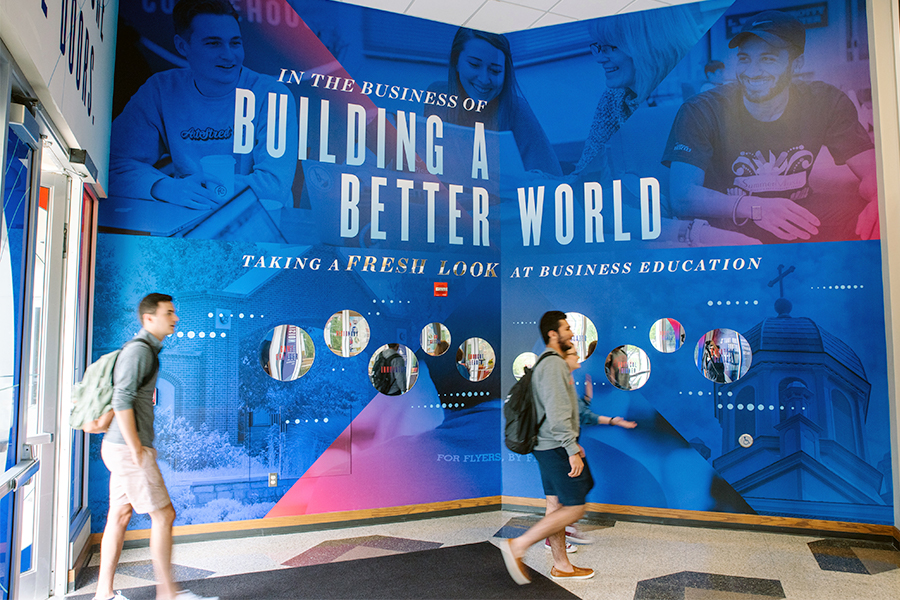Blogs

Financial Markets: It is Not What They Are, But What You Do With Them
By Maria Vivero, Ph.D.
Financial markets have been used for centuries to connect providers and users of funds to make projects viable. They have been necessary for firms to pool enough resources to fund expensive and risky ventures, such as sending Dutch sailors to Asia to obtain spices for trade in the 17th century, or more recently, sending commercial rockets to the International Space Station. Governments also take part in the markets, particularly the bond market, to finance large scale efforts ranging from wars to irrigation projects. The financial systems’ ability to pool resources to fund projects and share risks is unparalleled and has shaped the world we live in. Yet, despite their importance for human development, financial markets have also played a part in accentuating inequalities through practices such as predatory lending and redlining.
The field of financial economics, which we survey in our Finance curriculum, is mainly concerned with descriptive issues around the U.S. and global financial markets, such as their efficiency and structure, rather than the role they play in societal welfare. While the operational aspects of the markets are very important for a business education, it might underscore the real importance of the markets for all sectors of society. As our students enter the workforce in new and evolving fields created to solve the world's most pressing problems, they are increasingly discovering that these projects also require financing and institutional arrangements not unlike those seen in for-profit businesses.
Given that the academic curriculum at the University of Dayton advocates for the formation of professionals with a strong desire to work towards society's common good, it is necessary for our students and graduates to understand how their professional skills can be used to advance social causes and what is the state of the art on the interrelation between business and society.
It is in this spirit that CAP 305/FIN 200: Finance for the Common Good came to fruition—to provide constructive options for future professionals looking to work on projects that would advance social causes and needing practical ways to find them within the realm of the current financial markets. The course aims to show students that, in addition to helping corporations raise capital, financial instruments can also be used to implement projects designed by government agencies, foundations and NGOs to advance society’s common good, or in the words of Pope Paul VI, “the sum total of social conditions which allow people, either as groups or as individuals, to reach their fulfillment more fully and more easily.”
The course will be taught as a seminar with lectures and discussions based on academic and journalistic readings, as well as a series of conversations with guest speakers who have expertise in the space on local, national, and global levels in areas of fintech for financial inclusion, climate financing, microfinance, and crowdsourcing. Students will examine and reflect on the strengths and weaknesses of financial markets to advance social justice causes through case studies. They will also visit several businesses and community organizations in the City of Dayton currently using sustainable practices and the power of the markets to reach their objectives.
While these topics may primarily appeal to finance majors, CAP305/FIN 200 will be offered as a Common Academic Program course providing students across campus with the option to take it, filling their Diversity and Social Justice (DSJ) component. Students from all majors and disciplines, such as international business, human rights, international studies and sustainability studies, as well as those who are engaged in Flyer Consulting development projects, will find it of interest given the discussions on corporate social responsibility, the role of nonprofits and NGOs in financial markets, economic institutions and development, environmental project financing, and consumer and shareholder activism.
By introducing this course, University of Dayton students at large will have an opportunity to learn and see firsthand how financial instruments and systems can either obstruct social justice or help provide opportunities to the poorest and most marginalized members of society. At the end of the day, the difference will depend on the professionals who will one day work in these systems.
Maria Vivero, Ph.D., Associate Professor, Department of Economics and Finance.
Maria Vivero joined the University of Dayton in 2013 and currently teaches Finance courses at the School of Business Administration. She has 20 years of experience teaching Finance and Economics courses at the graduate and undergraduate levels in topics ranging from introductory finance and microeconomics to advanced topics in investments and international finance. Dr. Vivero is an active researcher with publications in asset pricing and the economics of information. Her current research agenda includes projects on the pricing of risk in international markets, the effects of income inequality in portfolio selection, and the effects of learning styles on hedge fund manager performance. In addition to her professional affiliation with UD, Maria is part of the Flyer family as the proud parent of a student in the Class of 2022.
